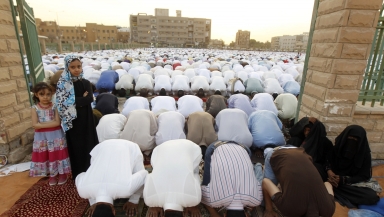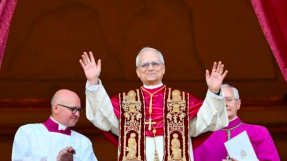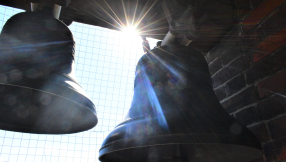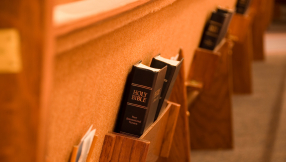
A man has been sentenced to death on charges of apostasy in Saudi Arabia after losing two appeals, according to reports.
Several local media outlets identified the man as Ahmad Al Shamri, in his 20s and from the town of Hafar al-Batin, who in 2014 allegedly uploaded videos to social media in which he renounced Islam and the Prophet Mohammad.
In February 2015, he was sentenced to death after being arrested on charges of atheism and blasphemy, held in prison and convicted by a local court.
Shamri's defence entered an insanity plea, adding that his client was under the influence of drugs and alcohol at the time of making the videos.
A Supreme Court ruled against him earlier this week, after he reportedly lost an Appeals Court case.
Shamri's identity or sentencing have not been verified by the Saudi authorities.
Under Saudi Arabia's strict religious laws, leaving Islam can be punishable by harsh prison sentences and corporal punishment.
A series of royal decrees under the late King Abdullah in 2014 re-defined atheists as terrorists, according to Human Rights Watch.
One citizen was last year sentenced to 10 years in prison and 2,000 lashes for expressing atheistic sentiment in hundreds of social media posts.
Shamri's name and the name of his home-town have trended on Arabic-speaking Twitter in recent days, with some users celebrating his sentencing.
One said: 'If you're a lowkey atheist that's fine. But once you talk in public & criticize God or religion, then you shall be punished.'
Another wrote: 'I wish there could be live streaming when you cut his head off.'
Saudi Arabia's human rights record has been consistently criticised by international human rights watchdogs.
Last week the Kingdom came under further scrutiny after it emerged that the country had been elected to the UN's women's rights commission.
Under Saudi Arabia's system of 'guardianship', women's rights and freedom of movement are heavily restricted. Women are not allowed to drive, and only voted for the first time in 2015.
'Electing Saudi Arabia to protect women's rights is like making an arsonist into the town fire chief,' said UN Watch Director Hillel Neuer. 'It's absurd.'













